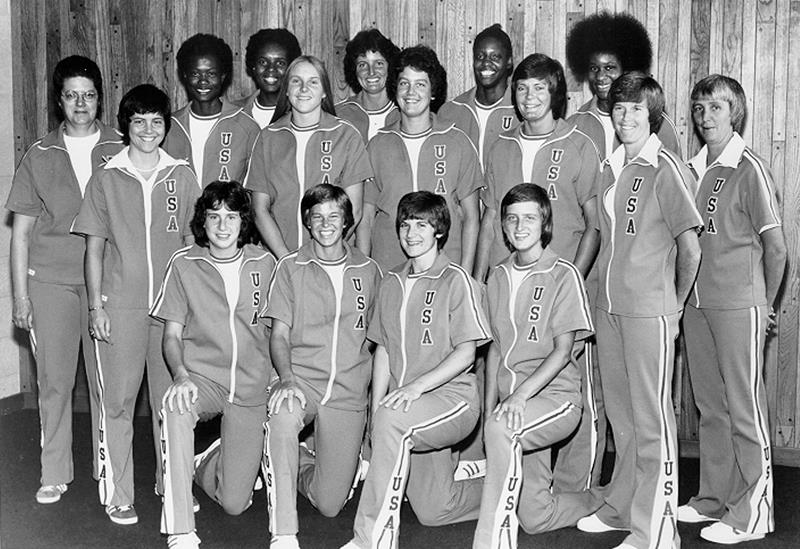Echoes of 1972.
None of us who are old enough can forget the events of the 1972 Olympics in Munich when the Black September group took nine members of the Israeli Olympic Team hostage after first killing two others. The incident ended with the deaths of the remaining nine athletes as reported by Jim McKay,
We just got the final word … you know, when I was a kid, my father used to say ‘Our greatest hopes and our worst fears are seldom realized.’ Our worst fears have been realized tonight. They’ve now said that there were eleven hostages. Two were killed in their rooms yesterday morning, nine were killed at the airport tonight. They’re all gone.
Thus the 1976 Games – both the Winter Games in Innsbruck and the Summer Games in Montreal – became the first Olympic Games with a highly visible security presence. For the Montreal Games, most reports estimate that increased security added 100 million Canadian dollars to the cost.
Let the Games begin.
Stéphane Préfontaine and Sandra Henderson each 15 years old carried the Olympic Torch and lit the Olympic Flame marking the first time two people would light the flame.
Queen Elizabeth II, as titular head of state, formally opened the games on 17 July.
In the Parade of Nations the Israeli team entered wearing black ribbons in memory of the events of 1972.
In June 1976, the New Zealand All Black rugby team began a months long tour in the Republic of South Africa. Based on the premise that the tour gave tacit approval to that country’s apartheid regime a group of African nations demanded the IOC ban New Zealand from participating in the Games. When the IOC refused to do so, Jean-Claude Ganga, a Congolese sports official organized an African boycott of the Games in protest. Twenty-six countries participated in the full boycott and three – Morocco, Cameroon, and Egypt – withdrew after early participation. The only African countries to participate throughout the Games were Ivory Coast and Senegal.
A 14 year old named Nadia Comăneci became the first gymnast to be awarded a perfect 10.
Meanwhile, in men’s gymnastics, Shun Fujimoto did this
to help Japan win the team gold medal.
Cuba’s Alberto Juantorena and Finland’s Lasse Virén had notable achievements on the track. Juantorena became the first man to win both the 400 meter and 800 meter races at a single Olympics. Virén, in an achievement that would remain unequaled for four decades, repeated his remarkable 1972 feat of winning gold in both the 5,000 and 10,000 meter races.
Hasely Crawford won the 100 meter sprint becoming the first gold medalist from Trinidad and Tobago.
A 20 year old Morehouse College student named Edwin Moses set a world record in winning the 400 meter hurdles. His was the only individual racing gold medal for the U S A. American men fared better in the relays taking gold in the 4×100 and 4×400 races.
Also in athletics but off the track, Caitlyn Jenner (born William Bruce Jenner) won the decathlon setting a then world record of 8,634 points and breaking the record he had set at the U S Olympic Trials just a month earlier. Long jumper Arnie Robinson and discus thrower Mac Wilkins rounded out the six gold medal total for the U S.
Five American boxers won gold medals in Montreal. They were Sugar Ray Leonard, Leon Spinks, Michael Spinks, Leo Randolph, and Howard Davis, Jr.
In the pool, the U S Men’s team won gold in 12 of the 13 events falling short only in the 200m breaststroke which was won by Great Britain’s David Wilkie. John Naber won four gold medals for the Americans.
The East German women’s swimmers nearly matched the American men. They won 11 gold medals in 13 races failing only in the 200m breaststroke (won by a Russian) and the 4×100 meters freestyle relay (won by the U S).
Complying with a new rule established in the previous year by the International Hockey Federation, hockey (aka field hockey) competed on an artificial pitch for the first time in Olympic history. New Zealand stood atop the podium with Australia taking silver and Pakistan the bronze. There was no women’s hockey competition.
Rowing, team handball, and basketball made their Olympic debuts as women’s sports. Six teams competed in handball with the USSR winning the gold medal. In rowing, the GDR (East Germany) won four of six gold medals with Bulgaria taking the remaining pair. The U S won a bronze medal in Eight with Coxswain and Joan Louise Lind took silver in the Single Sculls.
The Soviet Union won the initial gold medal in women’s basketball sweeping all five of its games. The United States and Bulgaria both finished 3-2 in the six team tournament. The American team claimed silver by virtue of a 95-79 win over Bulgaria.
[Photo from U S A Basketball.]
Playing alongside Ann Myers, Nancy Lieberman, and Pat Head Summitt, Luisa Harris scored the initial points in Olympic history. Harris would go on to become the only woman drafted by an NBA team (the New Orleans Jazz in the seventh round) and, in 1992, the first Black woman to be enshrined into the Naismith Memorial Basketball Hall of Fame. She is the subject of the documentary film The Queen of Basketball that has been nominated for an Academy Award as Best Documentary Short Subject. You can watch it here:.
Harris died at age 66 on January 18, 2022.

This is good stuff. I was 12 in 76 so it was the first Olympics that I really got into and remember. My father was a huge boxing enthusiast so we made sure to watch as much of that event as possible….
That was a great USA boxing team. I hope you keep reading. As the series goes along, I have some really great Olympic stories to tell.